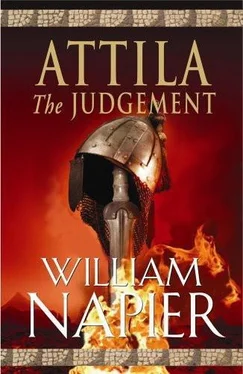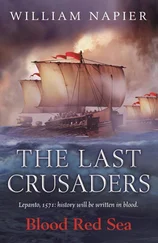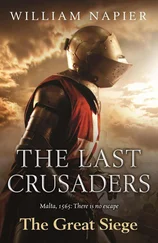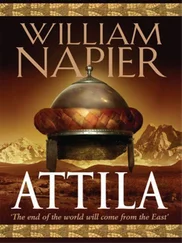William Napier - The Judgement
Здесь есть возможность читать онлайн «William Napier - The Judgement» весь текст электронной книги совершенно бесплатно (целиком полную версию без сокращений). В некоторых случаях можно слушать аудио, скачать через торрент в формате fb2 и присутствует краткое содержание. Жанр: Исторические приключения, на английском языке. Описание произведения, (предисловие) а так же отзывы посетителей доступны на портале библиотеки ЛибКат.
- Название:The Judgement
- Автор:
- Жанр:
- Год:неизвестен
- ISBN:нет данных
- Рейтинг книги:5 / 5. Голосов: 1
-
Избранное:Добавить в избранное
- Отзывы:
-
Ваша оценка:
- 100
- 1
- 2
- 3
- 4
- 5
The Judgement: краткое содержание, описание и аннотация
Предлагаем к чтению аннотацию, описание, краткое содержание или предисловие (зависит от того, что написал сам автор книги «The Judgement»). Если вы не нашли необходимую информацию о книге — напишите в комментариях, мы постараемся отыскать её.
The Judgement — читать онлайн бесплатно полную книгу (весь текст) целиком
Ниже представлен текст книги, разбитый по страницам. Система сохранения места последней прочитанной страницы, позволяет с удобством читать онлайн бесплатно книгу «The Judgement», без необходимости каждый раз заново искать на чём Вы остановились. Поставьте закладку, и сможете в любой момент перейти на страницу, на которой закончили чтение.
Интервал:
Закладка:
But his pride was very great and, rather than ask forgiveness, he would go down stiffnecked and unrepentant to Hell. A great city which looked much like Rome.
Only the wind plays the shepherd’s pipe,
Only the north wind sings your song,
O my People…
At a banquet he apportioned out his imaginary empire among his favourite sons. China to Dengizek, Gaul to Emnedzar, Italy to Uzindar, the Homeland of the Hungvar to his beloved Ellak, Persia to Ernak, and Africa to Geisen. Even as he was talking, his sons were laughing among themselves. The old fool!
They were sly and small of spirit, Attila’s sons. They had no strength in them. It had all been crushed out of them by the great rock that was their father. In his shadow they were blanched little weeds, sunless and sly. Little Bird turned away, weeping, unable to look. They mocked him before his face, those unworthy sons.
Attila announced that this was also a wedding banquet, for he had taken a new wife, a Burgundian girl. Her name was Idilco, and she was but nineteen or twenty years old. The women brought her into the tent. She was very beautiful, and the sons of Attila made lewd comments and catcalls. They joked among themselves that old boars had no business with young sows, and they shouted out that, though the knife gelds quickly and age gelds slowly, they both make geldings in the end.
Orestes’ hand was on his sword. But Attila only stared ahead, his once-mighty fist clutched round his wooden goblet, not hearing them.
Idilco smiled.
That night, Emperor Marcian in Constantinople dreamed of a great broken bow in the sky, like a strange new constellation. The dream puzzled him deeply.
Among the tents of the Huns, the chill dawn revealed the revellers asleep amid the empty flagons on heaps of animal furs. The fires burned low. But there was no sign of Attila. After some time, his faithful servant Orestes batted on the leather door of his inner tent. There was no answer. Orestes called again and again, but there was only silence. At last he cut the ties and went in.
At his anguished cry, warriors came running.
Idilco was crouched in a corner, shivering like a frightened animal. Attila lay on his back on the couch, naked. Blood had gushed in torrents from his mouth, drenching half his body. His eyes stared skywards.
Orestes moved over to the girl, knife ready.
She stood and held out her hand, an accusing, shaking finger.
‘I will not allow you the time for a dying curse,’ he said, grabbing for her long fair hair.
She stepped back. ‘Not a curse, a truth. You will hear it.’
Orestes paused. The atmosphere in the tent was heavy with horror and thick with the metallic odour of blood.
‘The Huns fought the Burgundians twenty years ago. I am twenty. Under their King Ruga, that foul drunkard, that hireling, the Huns were paid by the Romans to fight the Burgundians, my people.’ The girl grew in strength as she spoke. ‘My mother was very beautiful. She was raped. My father was slain. Perhaps I am half Hun, I neither know nor care. So all things come around. The Huns destroyed my family.’ She tossed back her hair and smiled. ‘Now I have destroyed their king.’ She looked at the horrible mockery of a marriage bed. ‘Cut his thoat like a hog. I have his blood and his seed on me still. But perhaps it is as the ancient prophecies say. His own shall destroy him. It is right. The Hun people have devoured themselves. Now kill me.’ She seized Orestes’ forearm. ‘ Kill me! ’
He looked into her blazing, triumphant eyes. Then he killed her.
Attila’s body was burned on a flaming pyre, laid out beneath a silk pavilion. Horsemen galloped round it, slashing themselves to bloody ribbons. Many horses were sacrificed, their bodies hefted and impaled on long pikes around the pyre. There were mourning pipes, angry drums and wailing women. Dust obscured the sun as thousands of horsemen galloped wildly over the plain, firing arrows into the reddening sky.
His calcified bones were laid in a triple coffin of gold, silver and iron, with many ornaments and jewelled weapons, goblets of gold and sacks of jewels. The River Tisza was diverted into a neighbouring channel, the huge coffin buried in the riverbed, and the river’s course restored, to flow over the place of burial again for all time. The captive slaves who buried him were slain and hurled into the river. To this day his burial place remains unknown.
All night the drums continued to beat, weary warriors shaking their heads, their hair loosed from their topknots and hanging low like the manes of horses in rain, shuffling and dancing round the fire. Their eyes were closed, their scarred cheeks caught the firelight and gleamed. In their deep throats a collective murmur, a low humming song like one voice, old as the earth, tired but implacable, willing to surrender to none but the earth itself.
Without anything being discussed, with no word from the eldest son, Dengizek, now supposedly King, the people took down their tents the next day and set out for the eastern wilderness from which they had so suddenly erupted to shake the pillars of the earth. The great wagons rolling through a haze of orange dust, their songs fading on the air as they vanished into the darkening steppes. A people in their proud strong noonday more feared than any other on earth, never to be heard of more. Children of witches and demons of the wind, now melting away. ‘ Like the wind, like the wind ’.
After the great horde of the people had gone, a single man remained. He had feathers and ribbons in his hair, and wore a goatskin shirt decorated with little black stick men. He sat high on a golden limestone bluff looking away over the great river towards the south and the west, looking out over Europe. A soft evening breeze stirred the grass and the yellow rockroses, and the sunset was beautiful on the water. How beautiful the world was in all its mystery. He understood nothing of it, after all. The world was as it was, unimaginably beautiful, and it broke his heart to leave it.
Weep not, Little Bird,
Tribe-lonely, restless,
Unheeded, nestless,
Words on your lips that hold
The People’s history,
More rare than gold.
And I salute you, earth-breaker,
Bridge-builder, fortress-maker,
Danube-tamer, Roman brother!
You called us the storm from the east,
Storm that shall not cease,
But you are the storm from the west,
Storm that shall know no rest.
14
It was some weeks before the news arrived at Ravenna and Constantinople that Attila, King of the Huns, was dead – at the hands of a girl of twenty.
Marcian understood his dream.
Valentinian got drunk.
Aetius hung his head.
Valentinian observed Aetius, and what looked like his sorrow. Only a few days later he summoned him to the palace.
The emperor had more guards around him than usual, and also several of his closest courtiers and advisers, including that old orator Quintilianus, the library-expert on Huns.
The general bowed curtly. There was a prolonged and unsettling silence, but Aetius was not unsettled. He had experienced many things worse than the ritual intimidation of an imperial audience.
Standing there in all his sad majesty, alone and silent and unafraid in that vast and echoing hall, its walls covered in gleaming mosaics showing the emperor as Lord of All, its great porphyry pillars disappearing up into the vaulted darkness overhead, the emperor high upon his dais gazed down in divinely-appointed judgement. Everything was designed to dwarf any mortal man who stood before the resplendent gilded throne. But Aetius was not dwarfed.
The emperor’s eyes were watery and unfocused, and his voice was soft and sinuous. ‘So,’ he said, ‘he is slain by a cruel fair maid. Your… alter ego. ’
Читать дальшеИнтервал:
Закладка:
Похожие книги на «The Judgement»
Представляем Вашему вниманию похожие книги на «The Judgement» списком для выбора. Мы отобрали схожую по названию и смыслу литературу в надежде предоставить читателям больше вариантов отыскать новые, интересные, ещё непрочитанные произведения.
Обсуждение, отзывы о книге «The Judgement» и просто собственные мнения читателей. Оставьте ваши комментарии, напишите, что Вы думаете о произведении, его смысле или главных героях. Укажите что конкретно понравилось, а что нет, и почему Вы так считаете.












